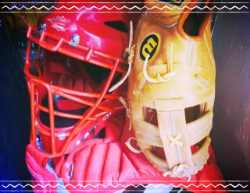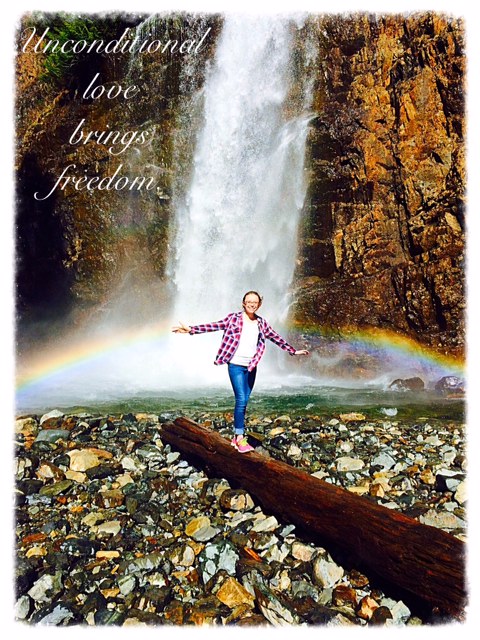Do your kids know you love them? I mean, KNOW you love them? What communicates love even louder than words?
Let’s take the story of Shane. Once a content kid, now his mood was darkening, and he spent more time in his room than usual. He wasn’t in the mood to eat. He didn’t go over to friends’ houses to hang out. He spent all his time sketching disturbing pictures. About death.
Not good.
This boy was a talented baseball player. His team was so good, they won the regional Little League Championship. He was very skilled and hard working, but something was “off.” His worried parents took him to a counselor to check it out. The boy reported liking baseball, his coaches, and his team mates.
So what was up? Why was this kid unhappy? It seemed like so much was going for him? After spending some time with him, and talking over the pictures he was drawing, the counselor asked him what his parents thought about his baseball playing.
He said his dad was really glad about him being such a good player, and that he got really into the games. He said that his mom tried to calm his dad down sometimes, espeically if he was getting too mad or too loud.
Hmmm. The counselor asked, “So, do you feel a lot of pressure to play well? To make your dad happy?” The boy went silent. Hmmm. It was time to bring the parents in.
The counselor said to the parents, “I have this hunch that your son wonders if your love for him has to do with how well he plays on the baseball field.” Both parents were quiet. They were visibly concerned for their son. They looked at each other and quietly said, “Shane, is that true? Do you feel like that?”
Shane looked down at his sketch book and nodded avoiding their eyes. Dad teared up and put his head in his hands. Mom reached out to hug her son. They were dismayed that their boy only felt lovable when he played well. They assured the counselor that they told him they loved him every day. Dad said, “My father never told me he loved me so I make sure I tell Shane all the time.”
But, “I love you if…” was communicated louder than, “I love you. Period.”
How could this happen to well-meaning, loving parents?
The counselor brainstormed why this could be. Maybe it was the way mom and dad fought over how much money baseball cost. Maybe it was because dad talked too much about how Shane could play better. Maybe it was because mom didn’t teach her husband what she intuitively knew, that boys need affection from their fathers as much as guidance.
Maybe all these things and more communicated conditional love to Shane- a type of love that was earned. These parents were good and loving parents that had their true message of love crowded out by other stuff.

After they shook off their inital shock, both parents affirmed their unconditional love for their son and said, “It doesn’t matter if you play good or bad, or if you hit a home run or strike out, you’re our son and we love you. Do you know that, Shane? Do you know that we love you even if you quit baseball right now?
Shane looked up to see his dad’s face, and Dad’s face was earnest. It gave Shane the courage to tell him how he felt.
“But, it’s like you don’t even care about how I feel. It’s just ”do better, play harder, practice more. It’s like you don’t even like me for me anymore. You just like baseball. No, you love baseball more than me. That’s how I feel.”
More silence. Then Dad said something the counselor didn’t expect, “I’m sorry you feel that way, Shane. I never felt like my dad loved me either.” More silence. With tears in his eyes, Dad said, “I never want you to feel that way. What can I do to make it better?”
The counselor helped them establish cues that Shane could give his dad when he felt bad about himself, or when he was afraid of Dad’s disappointment. They brainstormed ways they could communicate with baseball signs how they were feeling. Shane’s demeanor brightened.
Dad said he would try to be “less animated” at the games. Shane laughed, and said, “Yeah, right!” Then mom laughed. And then Dad laughed too. Dad said with a sheepish grin, “Ok, Ok! I get it, I can get carried away.” Then Mom and Shane ribbed Dad about the way he acted at games. Dad swallowed hard and showed the necessary humility to say, “Even though I want you to play hard at your games, I don’t want you to feel like I love baseball more than you. I’m sorry for making you think that.”
Unconditional Love? This family totally nailed it.
To be accepted unconditionally is to be loved; to be received willingly, given favor and to have the best believed of you. Unconditional acceptance is not based on performance, obedience or perfection.
Shane’s depression didn’t go away over night, but his parents willingness to communicate, understand and do things differently was a huge step in the right direction.
WHAT THIS FAMILY DID RIGHT
- THEY SOUGHT HELP They didn’t let embarrassment or shame keep them from asking for help. Counseling was not taboo for them, they invited the help they needed.
- THEY READ THE SIGNS They were right to be concerned about their son, who’s mood and behavior showed classic signs of depression. Mom and Dad knew that the morbid sketches, isolation and mood change was not normal or ok.
- THEY REACHED OUT Instead of pulling away and pulling inward, they responded to their son’s pain with understanding and comfort. Mom reached out to hug their son, and Dad responded with gestures of authentic grief.
- THEY EMPATHIZED Dad normalized Shane’s feelings by empathizing. Dad said he knew what it felt like to feel unloved, and he understood the pain Shane was feeling. He got it.
- THEY TOOK A STEP Dad coupled the apology with action. Not only did Dad express grief for Shane’s pain, he also took action to make some changes.
- THEY DIDN’T SHAME Neither parent was defensive saying shaming comments like, “Well, he shouldn’t feel that way,” or “How could he think that? We always say we love him, ” or “That’s just silly, he needs to get over it!”
- THEY KNEW HOW TO LAUGH AT THEMSELVES Both parents knew how to laugh at themselves. Their laughing communicated that Dad knows he get’s too riled up at the games, and that he sometimes can be a tad rediculous. By all of them laughing together, they deflated the shame of dad’s over-doing it.
YOU NEED UNCONDITIONAL ACCEPTANCE TOO! Don’t offer yourself love IF you lose that weight, or IF you get that promotion, or IF that first date calls for a second date. Love yourself with the unconditional love that God offers you-
unmerited, unearned, and unconditional.
Don’t pressure yourself to be perfect. You will feel the same way Shane did- depressed, lonely, and powerless. When you feel down on yourself because you just can’t get life “right,” take the steps that Shane’s parents did. Get help, Reach out, nurture yourself, refuse to shame yourself, and get in the habit of not taking yourself so seriously.
When have you experienced unconditional love before? When have you found yourself offering love with conidtions like these parents? How did you take your next right step to make it better?




